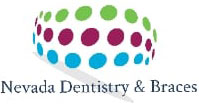With a skilled oral surgeon at Nevada Dentistry & Braces, you can rest easy knowing you’re getting some of the best possible dental care in the Las Vegas Valley. A routine checkup can be stressful and overwhelming for many people, so it’s no surprise that combining the words “dental” and “surgery” sends stress levels skyrocketing.
Thankfully, modern advances in sedation have made it possible to sleep soundly through even the most daunting dental procedures, so you don’t have to experience as much anxiety.
Oral Surgery Explained
Oral surgery is a catch-all term for dental procedures requiring an incision somewhere within the mouth. This includes some, but not all, tooth extractions. For instance, impacted wisdom teeth often require surgical extraction because they have not yet erupted from the gums. In contrast, removing fully emerged teeth is considered a simple extraction since no incision is required.
Who Can Perform Surgery In The Mouth?
While a regular dentist can do simple procedures like crowns and fillings, oral surgery can only be performed by a licensed oral and maxillofacial surgeon, who undergoes at least four extra years of specialized training after dental school. These surgeons are also the only dentists qualified to administer the deepest levels of sedation, which are very similar to general anesthesia.
Common Types Of Oral Surgery
- Impacted Wisdom Teeth Removal
- Dental Implants
- Bone Grafting
- Gum Grafting
- TMJ Surgery
- Sleep Apnea Treatment
- Maxillofacial Reconstruction
Sedation Options
- Oral Sedation
- Laughing Gas
- IV Sedation
- Twilight Sedation
- Deep Sedation
- General Anesthesia
What To Do After Your Procedure
Proper aftercare is essential to prevent infections and other post-surgical complications, and the care routine will vary based on the type of surgery you’re having. Your oral surgeon will give you in-depth instructions on what to eat and how to care for your healing site to experience a simpler and more comfortable recovery.
Things To Avoid After Oral Surgery
Please note that if you’ve had a tooth extracted, it is crucial that you avoid smoking, using straws, rinsing vigorously, eating hard or chewy foods, and touching the extraction site for the first two weeks after the surgery. This is because these activities can dislodge the blood clot and expose the underlying bone and nerves—creating an extremely painful condition known as dry socket. Thankfully, your surgeon can teach you specialized care techniques to greatly reduce the risk of this situation occurring after tooth removal.
Trust Us With Your Oral Surgery In Las Vegas
Our dental surgeons at Nevada Dentistry & Braces have completed comprehensive post-graduate training and residency programs. Here, you can rest assured that your smile is in good hands while you are comfortably sedated for your procedure. Contact our Las Vegas office today to schedule a consultation.



